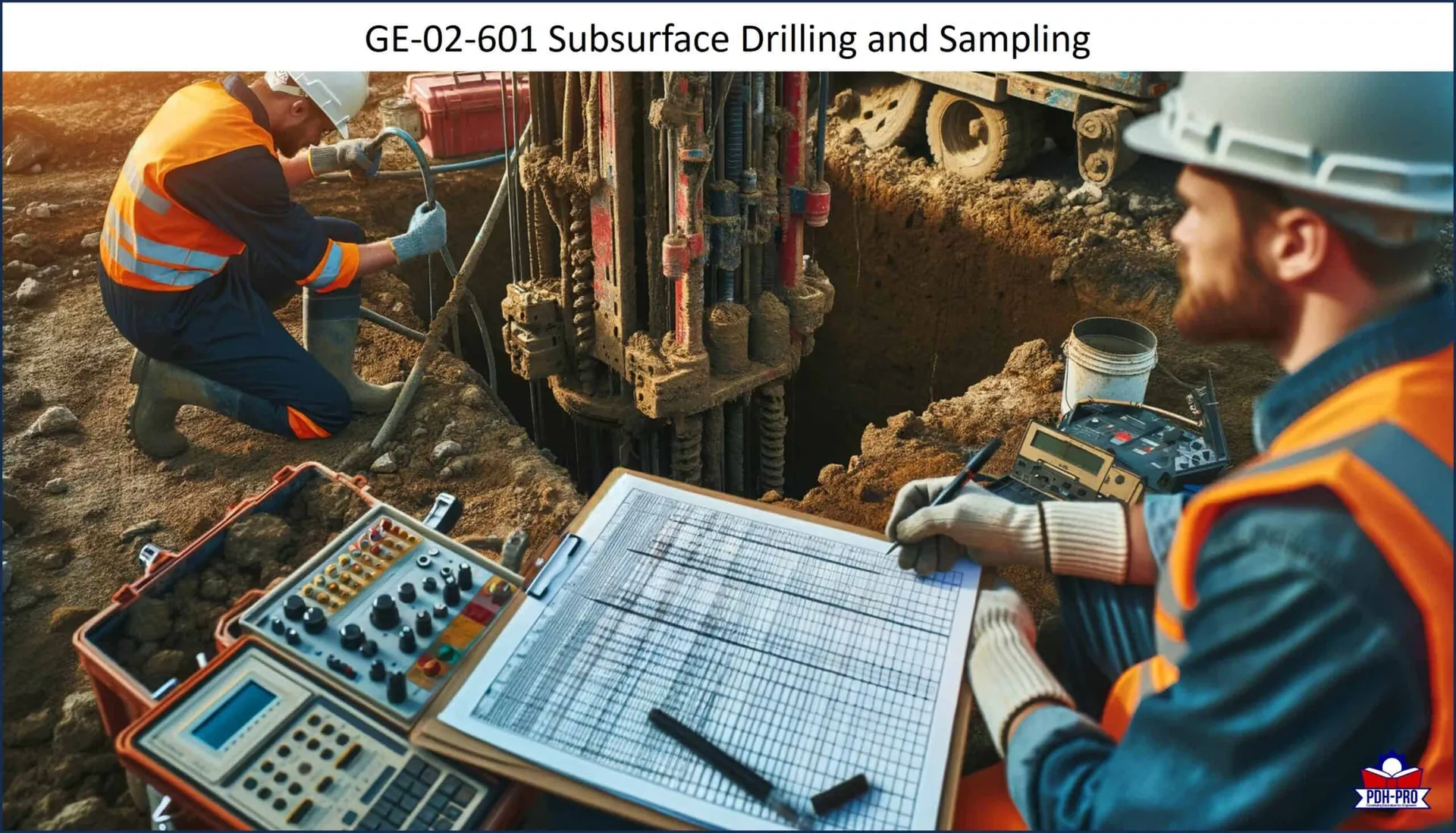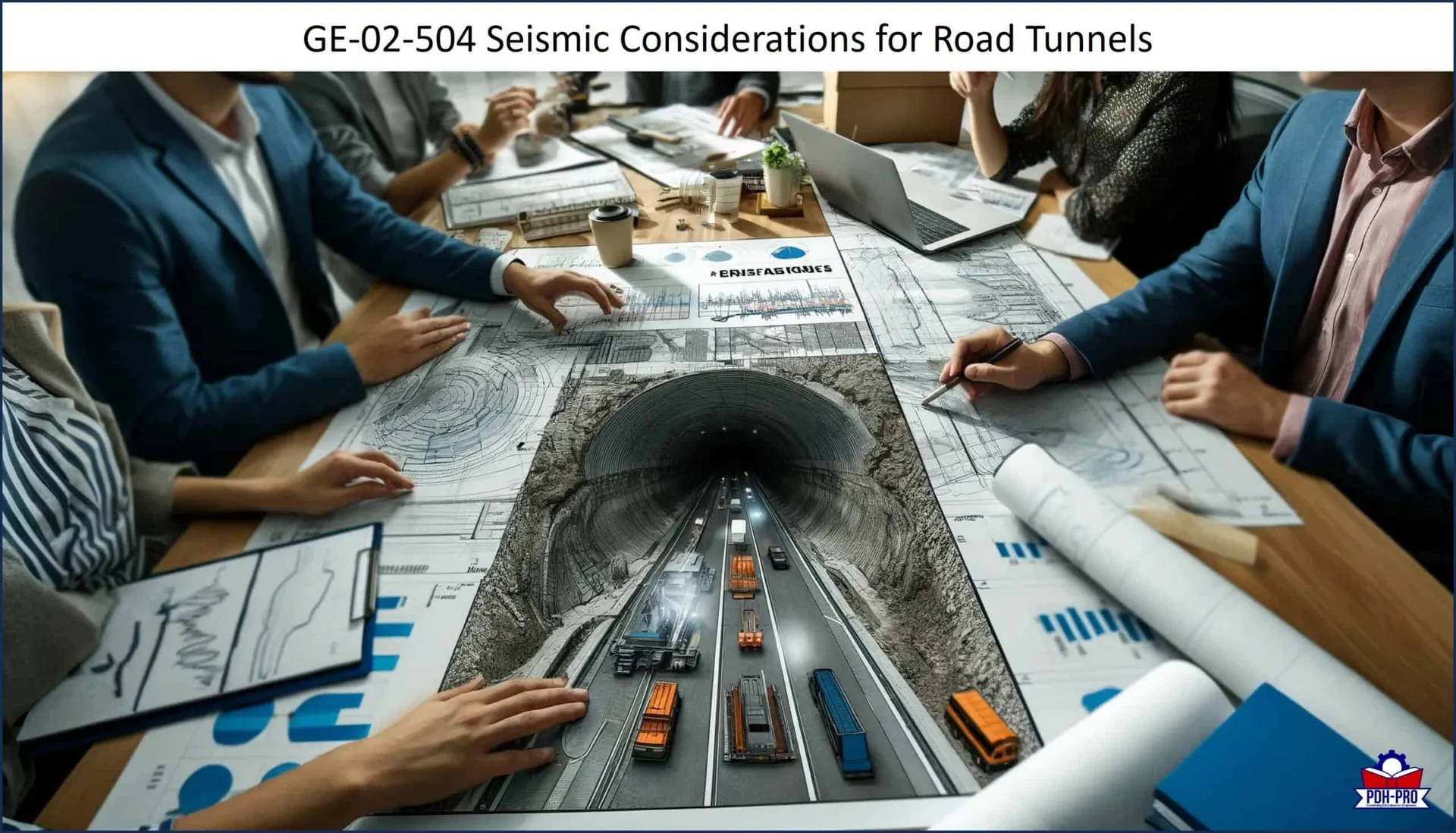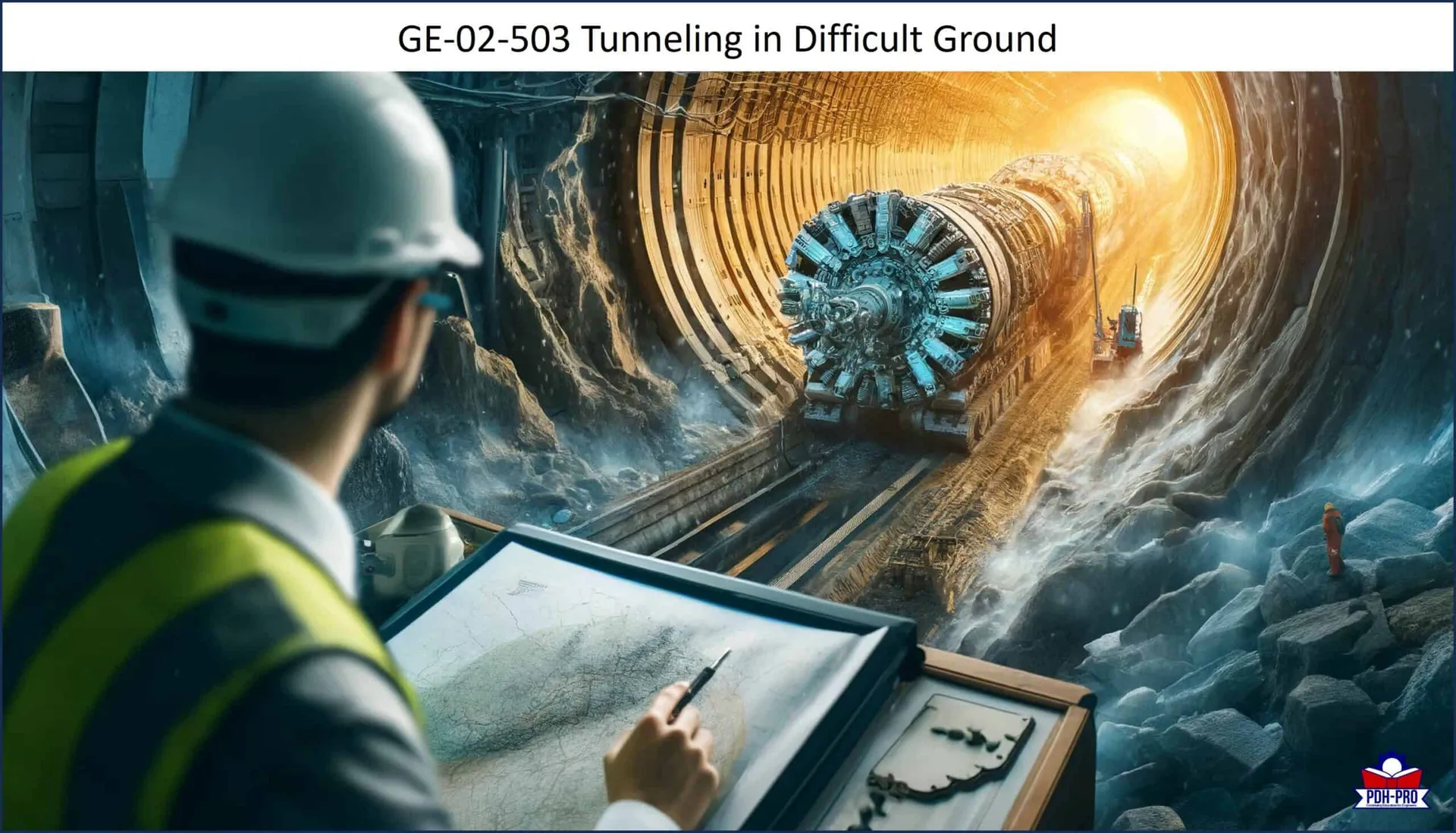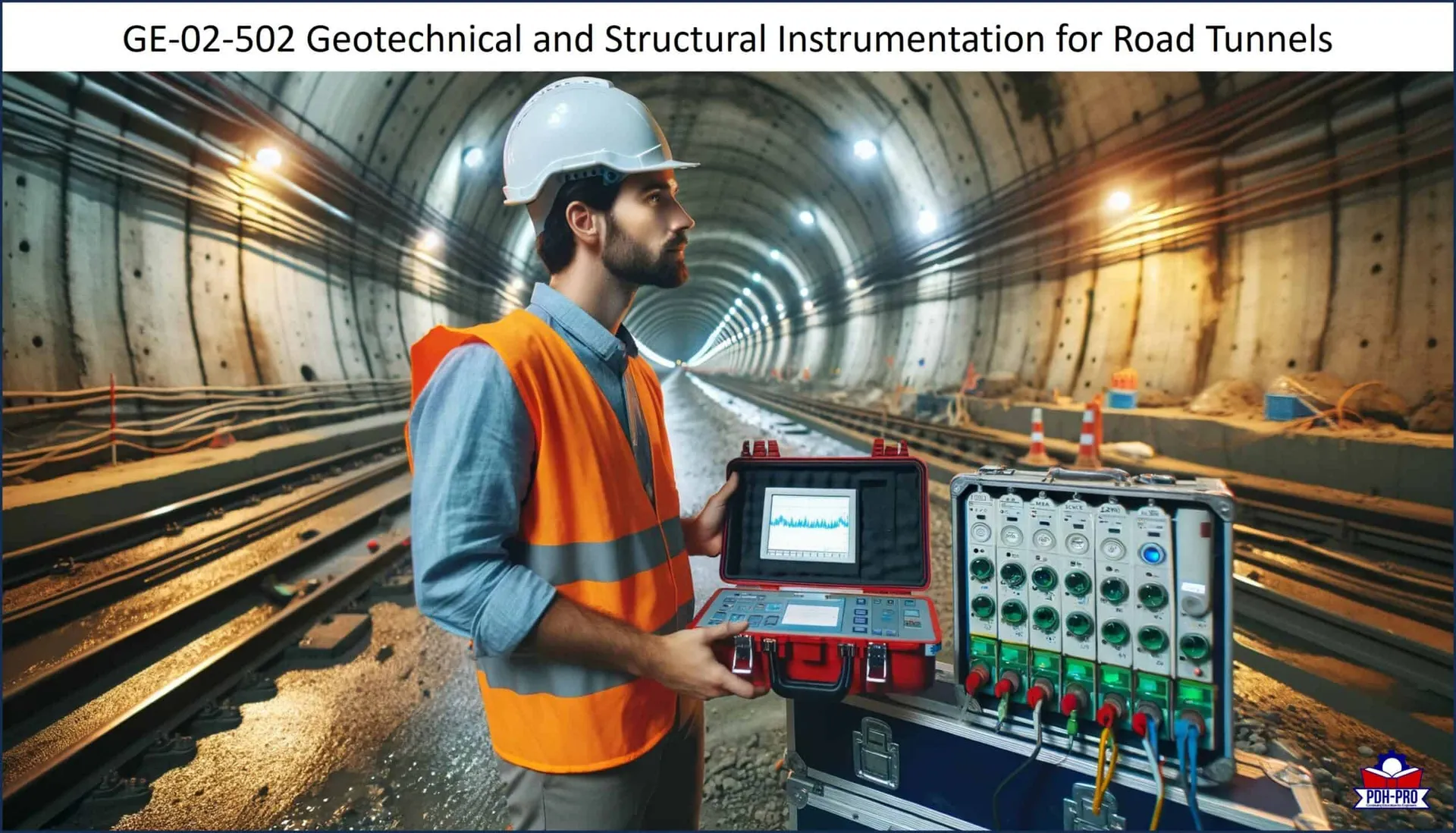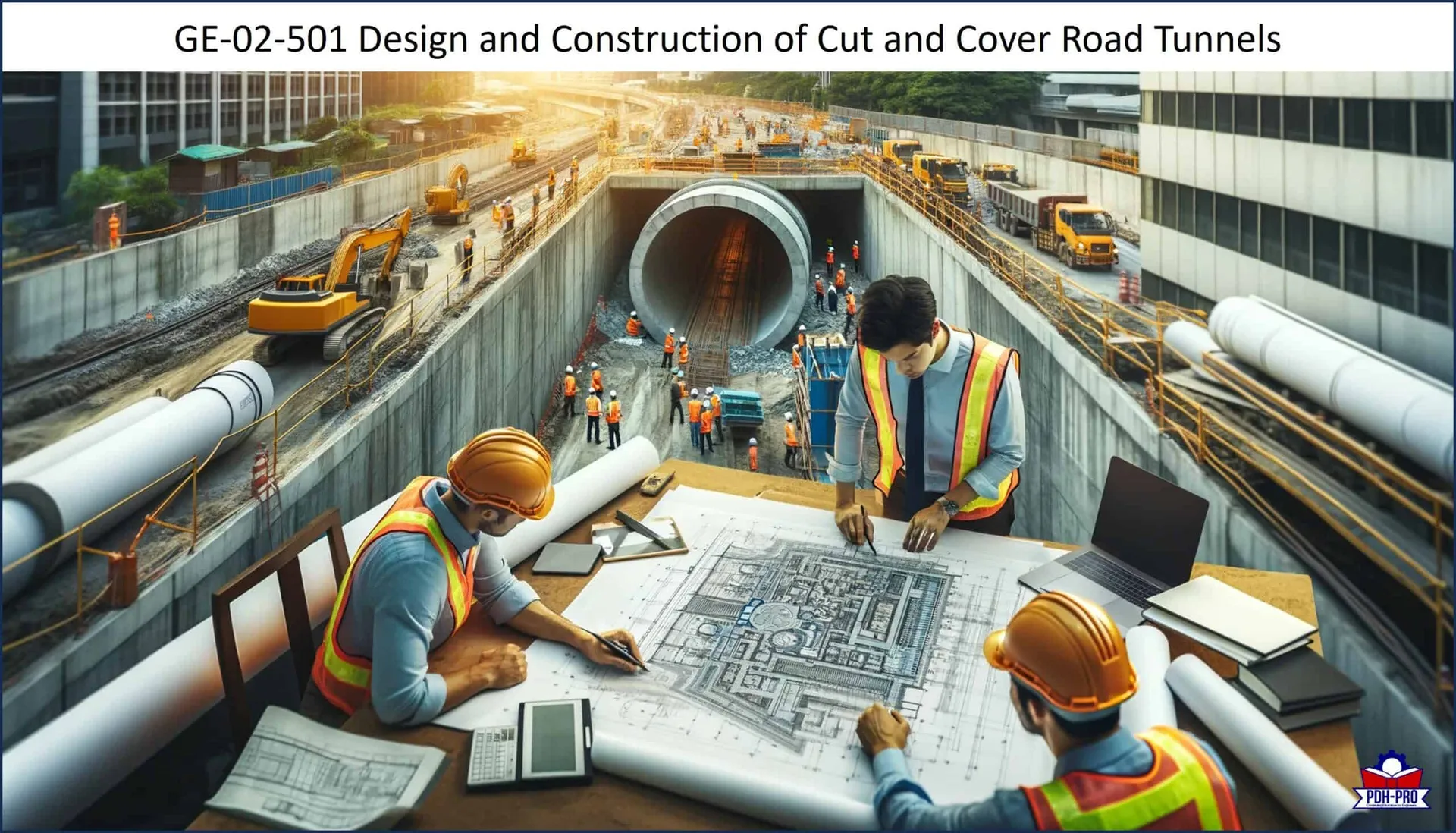
- Home
- Contact Us
- Corporate Solutions
- Webinars
- Packages
- Courses
- Categories
- Live Webinars
- Packages
- Chemical Engineering
- Civil Engineering
- Electrical Engineering
- Petroleum Engineering
- Environmental Engineering
- Geotechnical Engineering
- Mechanical Engineering
- Structural Engineering
- Sustainability
- State Rules and Regulations
- Ethics and Law
- Project Management
- HSSE
- Petroleum Engineering
- Timed & Monitored – Ohio
- On Demand Webinars
- More
Course Full With Both Sidebar
Condimentum Cursus Lorem ParturientInstructorPDH Pro Staff
TypeOnline Course
Price$48
Please sign in first
Not a member?
Please simply create an account before buying/booking any courses.
Create an account for free!
Subsurface Drilling and Sampling
Subsurface Drilling and Sampling This course provides an overview of the equipment and procedures commonly used for the drilling and sampling of soil and rock as part of a geotechnical site investigation. The methods addressed in this course are used to retrieve soil samples and rock cores for visual examination and laboratory testing. The planning,... Learn More
InstructorPDH Pro Staff
TypeOnline Course
Price$84$48
Please sign in first
Not a member?
Please simply create an account before buying/booking any courses.
Create an account for free!
Seismic Considerations for Road Tunnels
Seismic Considerations for Road Tunnels Tunnels, in general, have performed better during earthquakes than have above ground structures such as bridges and buildings. Adequate design and construction of seismic resistant tunnel structures, however, should never be overlooked, as moderate to major damage has been experienced by many tunnels during earthquakes. This course provides general procedures... Learn More
InstructorPDH Pro Staff
TypeOnline Course
Price$42
Please sign in first
Not a member?
Please simply create an account before buying/booking any courses.
Create an account for free!
Tunneling in Difficult Ground
Tunneling in Difficult Ground Engineers like to work with materials having defined characteristics that do not change from one location or application to another. However, in many cases special approaches or arrangements must be made to safely and efficiently drive and stabilize the tunnel as it passes through this “Difficult Ground”. The factors that make... Learn More
InstructorPDH Pro Staff
TypeOnline Course
Price$84$48
Please sign in first
Not a member?
Please simply create an account before buying/booking any courses.
Create an account for free!
Geotechnical and Structural Instrumentation for Road Tunnels
Geotechnical and Structural Instrumentation for Road Tunnels The primary purpose of geotechnical and structural instrumentation is to monitor the performance of the underground construction process in order to avoid or mitigate problems. Advanced and refined types of instrumentation abound, and electronics coupled with computers have made remote monitoring, even from half a world away, practically... Learn More
InstructorPDH Pro Staff
TypeOnline Course
Price$63$36
Please sign in first
Not a member?
Please simply create an account before buying/booking any courses.
Create an account for free!
Design and Construction of Cut and Cover Road Tunnels
Design and Construction of Cut and Cover Road Tunnels The increased use of underground space for transportation systems and the increasing complexity and constraints of constructing and maintaining above ground transportation infrastructure has created a need for improved understanding of tunnel engineering and tunnel construction methods. This course presents the construction methodology and excavation support... Learn More
Course Categories
- Chemical Engineering
- Civil Engineering
- Electrical Engineering
- Environmental Engineering
- Ethics and Law
- Geotechnical Engineering
- HSSE
- Live Webinars
- Mechanical Engineering
- On Demand Webinars
- Packages
- Petroleum Engineering
- Project Management
- State Rules and Regulations
- Structural Engineering
- Sustainability
- Timed & Monitored – Ohio
